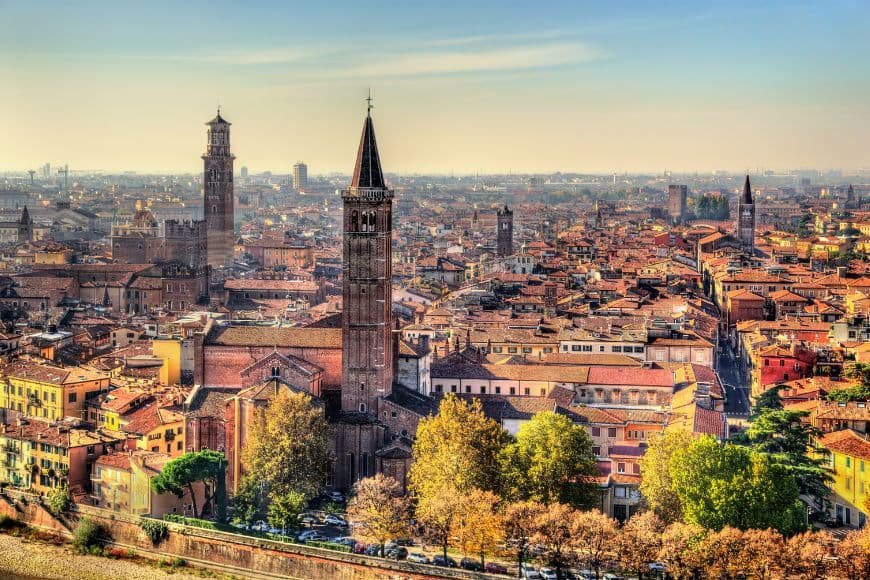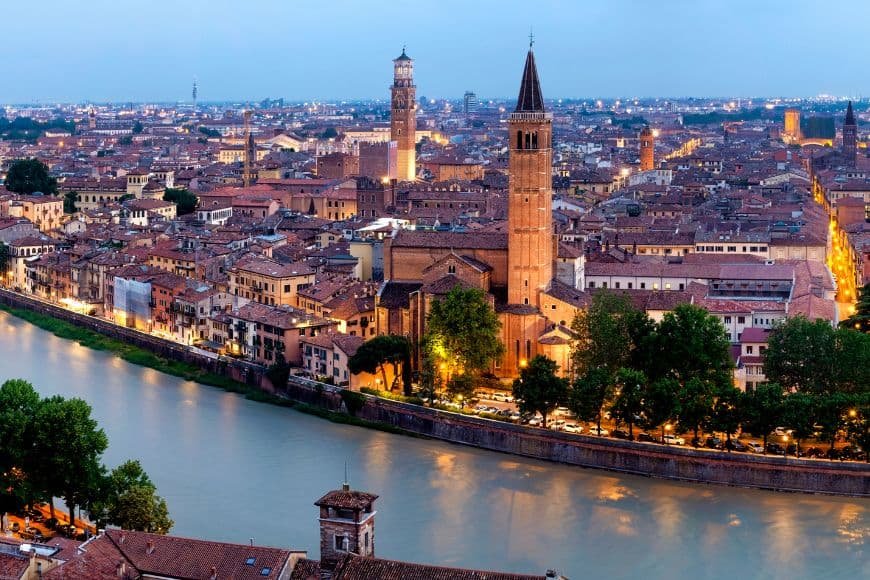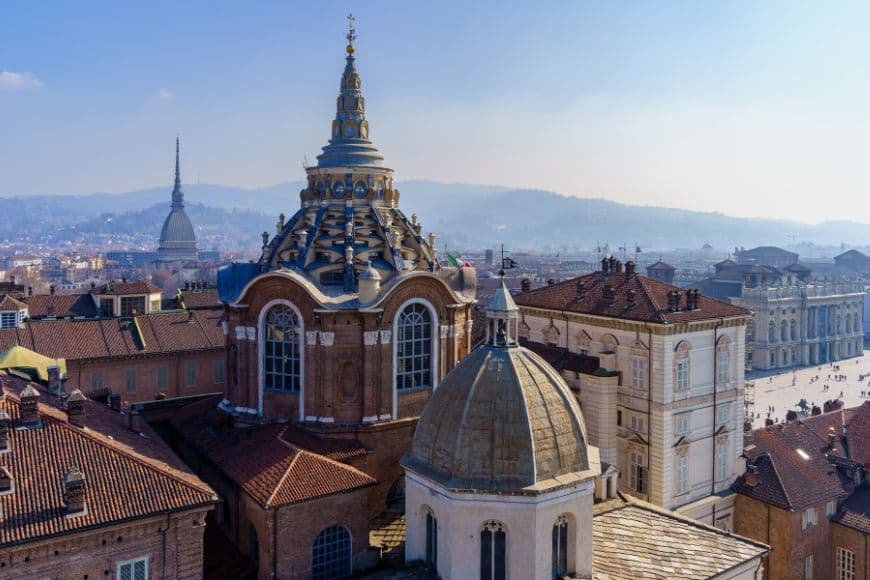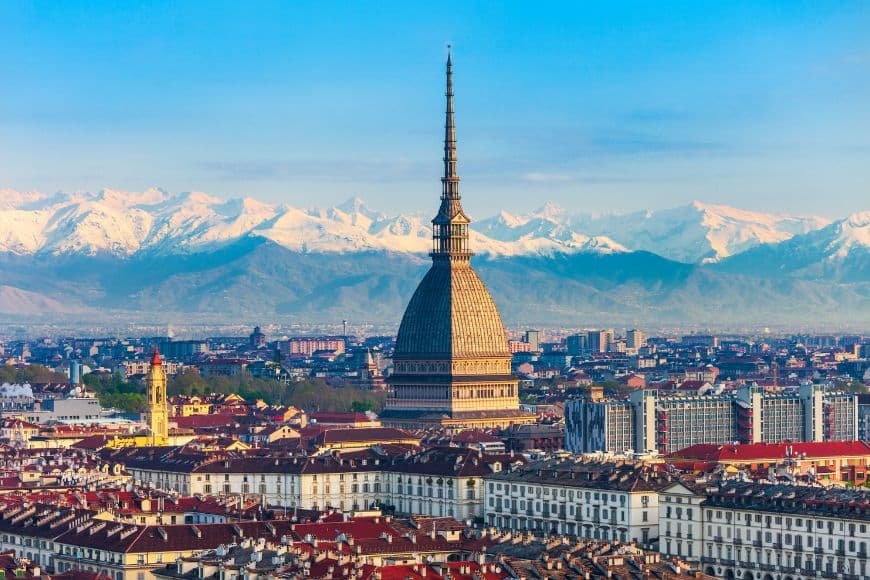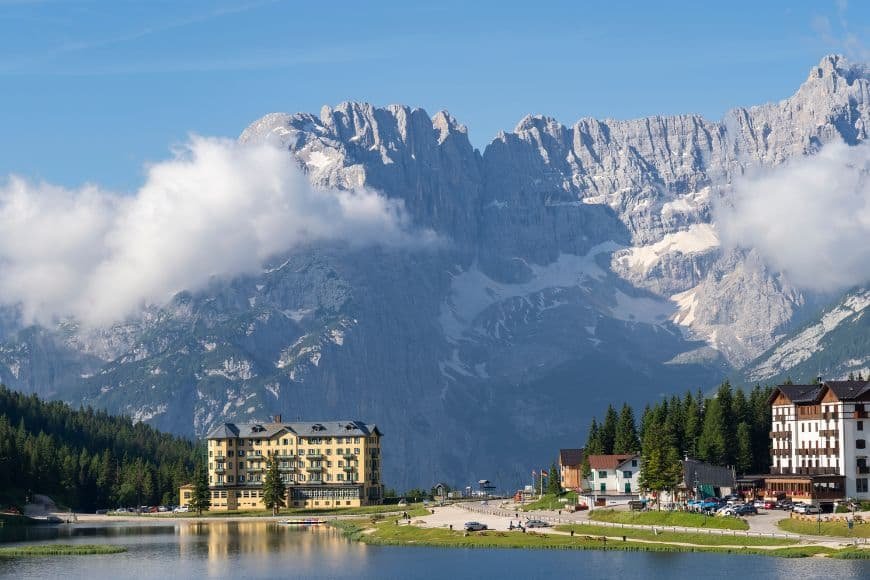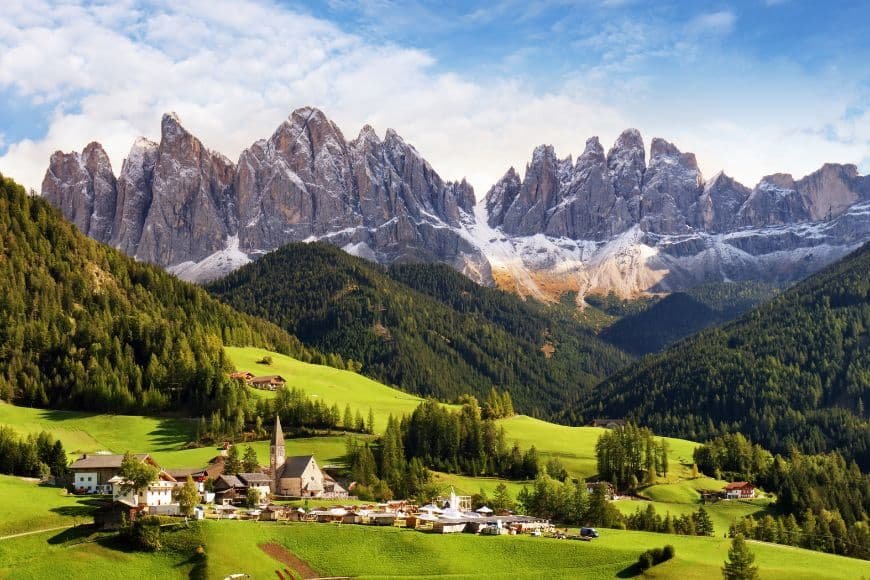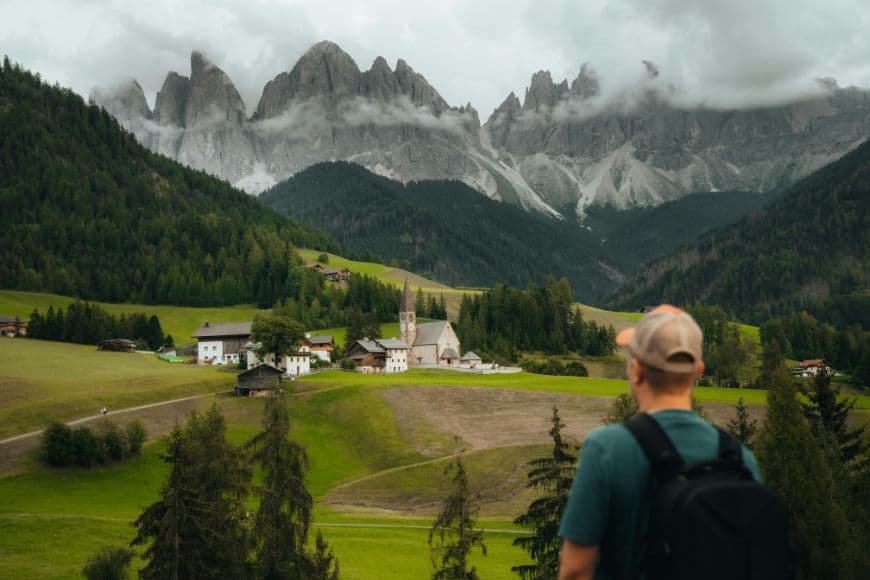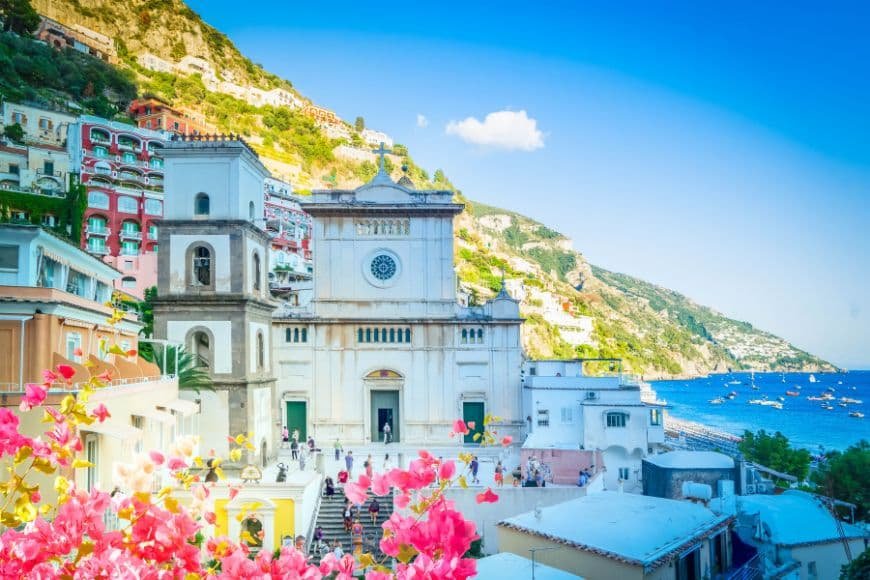Italy Travel Tips: Essential Guide for First-Time Visitors

by Asia A. | Last Updated January 25, 2026

Planning a trip to Italy for the first time can feel both exciting and overwhelming. With so many iconic cities, ancient ruins, world-class museums, and mouthwatering food, it’s easy to wonder where to even begin.
That’s why I’ve pulled together my best Italy travel tips — a mix of practical advice and insider knowledge — to help you avoid common mistakes and travel smarter. Whether you’re looking for tips for traveling to Italy on a budget, cultural etiquette to keep in mind, or simply want to know what to expect as a first-time visitor in Italy, this guide will walk you through everything.
As someone who has spent countless trips wandering from Rome’s cobblestone alleys to the vineyards of Tuscany and the canals of Venice, I can tell you that no two journeys here are ever the same. Italy rewards travelers who slow down, embrace its rhythms, and travel with curiosity. In this updated Italy travel tips guide for 2025, I’ll share the lessons I’ve learned, the mistakes you can skip, and the local secrets that will make your adventure unforgettable.
👉 For an even deeper dive into planning your trip, don’t miss our Ultimate Italy Travel Guide (2025) — packed with itineraries, budgeting tips, and insider advice from locals.
- Essential Planning Tips for Italy
- Transportation & Getting Around Italy
- Money & Budgeting Tips
- Food & Dining Etiquette in Italy
- Cultural Etiquette & Local Customs
- Safety & Common Travel Mistakes to Avoid in Italy
- Packing & What to Bring to Italy
- Technology & Connectivity in Italy
- Health, Safety & Travel Insurance in Italy
- Italy Bucket List
- Final Thoughts: Planning Your Italy Trip
- FAQs About Italy Travel Tips
Essential Planning Tips for Italy
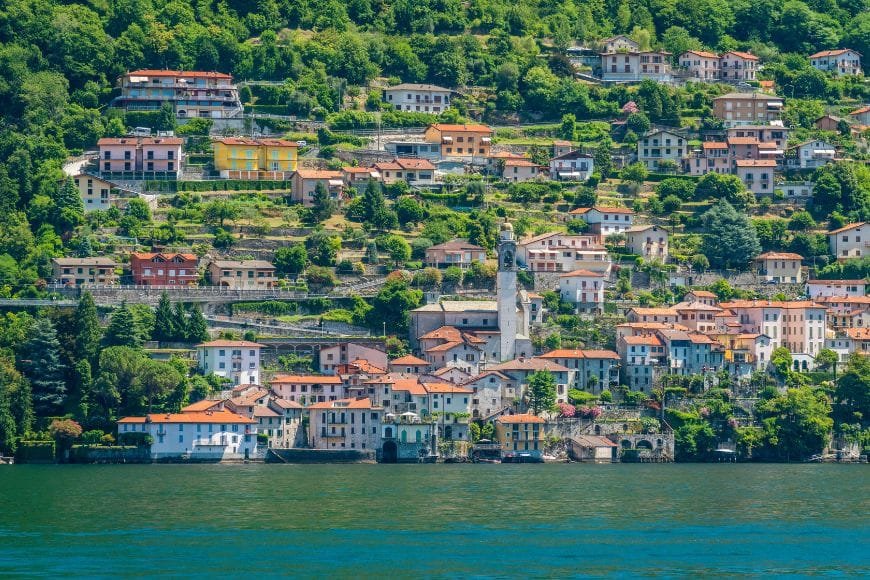
Before packing your bags, a little planning will make a huge difference in how smoothly your trip goes. Italy is a country of seasons, rhythms, and diverse regions — what works in Venice might not be ideal in Sicily. Here are the essentials you should know before you book.
Best Time to Visit Italy
If you’re wondering about the best time to visit Italy, the short answer is spring (April–June) and fall (September–October). These months bring mild weather, fewer crowds than peak summer, and a chance to enjoy local festivals.
July and August can be hot, especially in southern Italy, and many Italians take their holidays then, closing shops or restaurants in smaller towns. Winter, meanwhile, is perfect for Christmas markets or skiing in the Dolomites.
Personal highlight: I still remember visiting Florence in late September — warm enough for an evening gelato stroll, but cool enough that the Uffizi felt calm and uncrowded.
How Many Days Do You Need in Italy?
Many first-time visitors ask: How many days do I need in Italy? It depends on your pace. With 7 days, you can cover highlights like Rome, Florence, and Venice on a quick itinerary. With 10–14 days, you’ll have time to explore Tuscany, Cinque Terre, or even the Amalfi Coast. If you’re lucky enough to have three weeks, you can dive into Sicily, Puglia, or the Dolomites.
Tip: Don’t try to do everything in one trip. Italy rewards travelers who go slow, sip their espresso, and savor each piazza.
Get our FREE Italy
Travel Guide
E-Book
This printable guide is your ultimate companion for exploring Italy, with insider tips, detailed itineraries, transportation advice, must-see attractions, and more.

Where to Stay in Italy
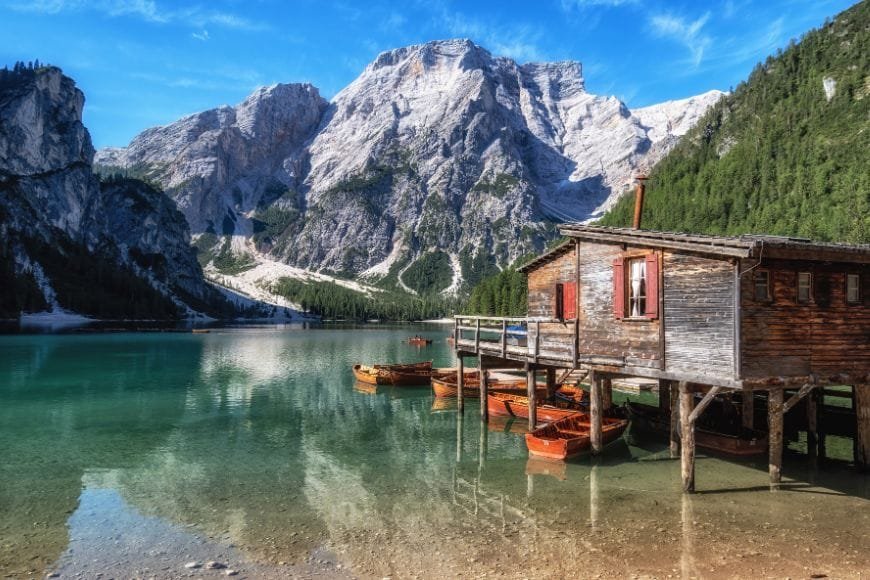
Deciding where to stay in Italy shapes your whole trip. Big cities like Rome and Milan offer international hotels, while smaller towns give you charming B&Bs and boutique apartments. For a truly Italian experience, consider an agriturismo — a countryside farmhouse where you can taste local wine, olive oil, and home-cooked meals.
Personal highlight: My favorite stay so far was in a rustic Tuscan agriturismo, waking up to rolling vineyards and a homemade breakfast of fresh ricotta, figs, and honey.
Transportation & Getting Around Italy
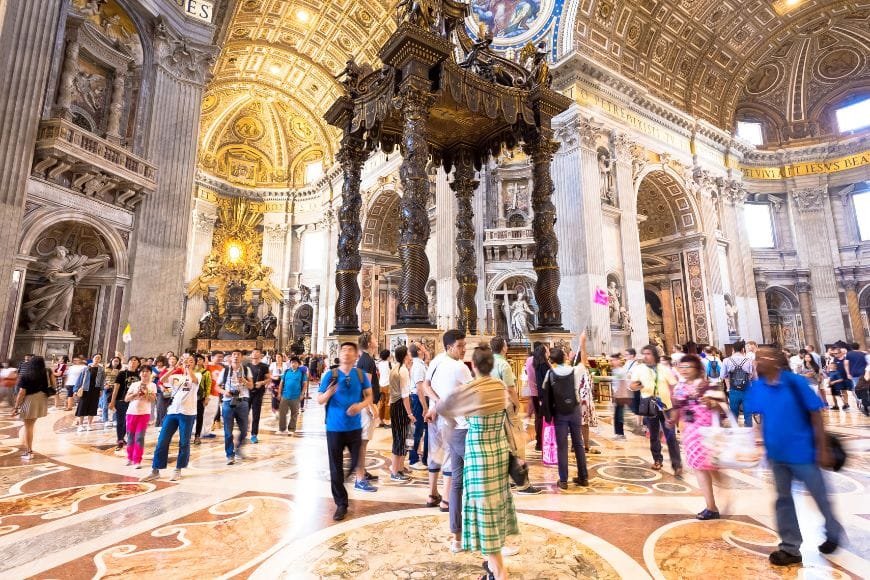
One of the biggest decisions when planning your trip is how to get around Italy. With its mix of high-speed trains, regional buses, ferries, and winding country roads, choosing the right option can save you both time and stress.
Trains in Italy
For most travelers, trains are the best way to travel between major cities. High-speed services like Trenitalia’s Frecciarossa and Italo connect Milan, Florence, Rome, Venice, and Naples in just a few hours. Book in advance for the best fares, especially on popular routes. Regional trains are slower but cheaper, perfect for short trips between nearby towns.
Local note: Living in Milan, I often take the Frecciarossa to Florence for day trips — it’s fast, comfortable, and drops you right in the city center.
Driving in Italy
Renting a car is ideal for exploring regions like Tuscany, the Dolomites, Sicily, or Puglia, where trains don’t reach small towns and scenic routes are the highlight. But be prepared: driving in Italy has its quirks. Watch out for ZTL zones (restricted traffic areas) in cities, understand how toll roads (autostrade) work, and remember that parking can be tricky.
Trains vs. Driving in Italy
For most first-time travelers, trains in Italy are the easiest and most comfortable way to move between major cities like Rome, Florence, Milan, and Venice.
That said, driving in Italy opens up a completely different side of the country — one filled with hilltop villages, vineyards, and hidden coastal roads that trains can’t reach. Just keep in mind that driving in large cities is stressful, parking is limited, and ZTL zones (restricted traffic areas) can lead to hefty fines if you’re not careful.
Personal highlight: On my first Tuscany road trip, I underestimated how small and winding the country lanes were — but watching the sun set over Chianti’s vineyards from the driver’s seat made every hairpin turn worth it.
Public Transportation in Italy
Italy’s cities are well connected with metros, buses, and trams. Rome and Milan have efficient metro systems, while Venice relies on water buses (vaporetto). Tickets are inexpensive, but always remember to validate them before boarding — inspectors do check, and fines are steep.
Domestic Flights & Ferries
For long distances — like Milan to Sicily or Venice to Sardinia — domestic flights save time. Budget airlines like Ryanair, EasyJet, and Volotea connect major cities affordably. Ferries are the way to go if you’re visiting islands such as Sicily, Sardinia, or Capri.
ZTL Zones & Parking Rules
If you decide on a rental car, make sure you know about ZTL in Italy — restricted traffic zones in historic city centers. Entering without a permit will automatically trigger a fine, often sent to you months later. Always check where your hotel is located and plan parking in advance.
Personal highlight: I still remember nervously driving into Florence for the first time and realizing too late that I had crossed a ZTL zone. Months later, a fine arrived in the mail — lesson learned!
Bikes & Walking
In historic centers, walking is the best way to explore — many areas are pedestrian-only. In Milan, Florence, and Rome, bike-sharing services are also becoming more popular, but be cautious on cobblestones and busy streets.
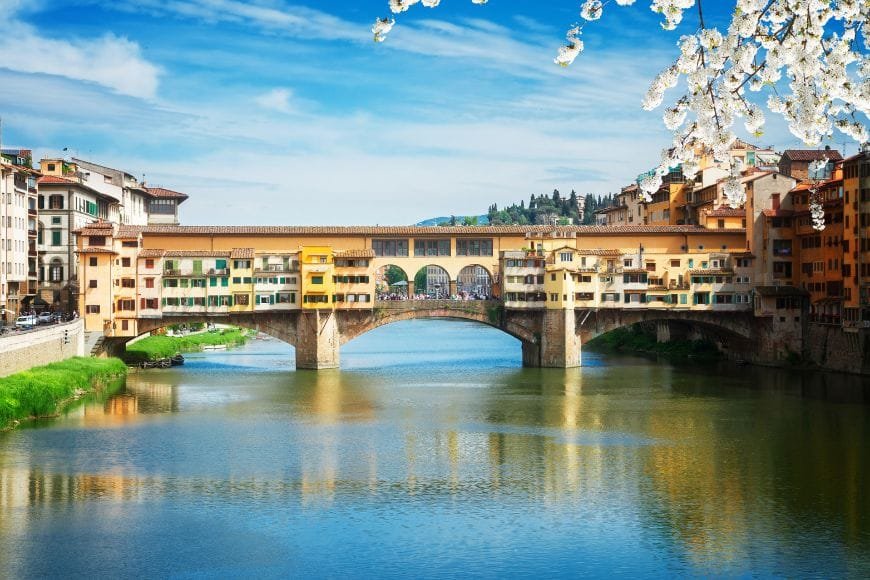
🚗 Getting Around Italy with Confidence
Understanding how travel works on the ground can make a huge difference on your first trip to Italy — especially if you plan to move between regions.
- Learn the rules, ZTL zones, and car rental basics before driving → Driving in Italy: Rules, Tips & What to Know Before You Go
- Discover beautiful routes that connect Italy’s regions at a relaxed pace → Best Scenic Drives in Italy: Routes, Tips & Must-See Stops
Money & Budgeting Tips
Understanding how money in Italy works can save you a lot of stress (and sometimes a bit of embarrassment). Between knowing when to carry cash, how tipping works, and setting a realistic budget, these tips will help you spend smarter.
Cash vs. Cards in Italy
Italy is gradually becoming more card-friendly, but cash is still king in many small towns, markets, and family-run trattorias. ATMs (bancomat) are widely available, though watch out for fees when using foreign cards. Always keep some small bills and coins handy — especially for buses, coffee at the bar, or tipping.
Tipping in Italy
Unlike in the U.S., tipping in Italy isn’t expected in most situations. Restaurants often include a small service charge (coperto) on the bill. Leaving a euro or two in cafés, rounding up the bill, or tipping for exceptional service is appreciated but not mandatory.
How Much Does a Trip to Italy Cost?
So, how much does a trip to Italy cost? The answer depends on your style of travel. On average, budget travelers can manage around €70–100 per day, mid-range travelers should expect €150–250, while luxury trips can easily exceed €400 per day. Accommodation and dining vary widely by city — Milan and Venice tend to be pricier, while southern Italy is generally more affordable.
Personal highlight: On one trip to Lake Como, I decided to splurge on a private boat ride. It cost more than my daily budget — but gliding across the water at sunset with the Alps in the background was worth every euro.
Food & Dining Etiquette in Italy
For many travelers, the highlight of visiting Italy is the food. But to really enjoy Italian food culture, it helps to know a few unwritten rules. Eating here is not just about what’s on the plate — it’s about when, how, and with whom you enjoy it.
How to Eat Like a Local
Italians eat with rhythm and ritual. Breakfast (colazione) is usually a quick espresso and pastry at the bar, while lunch and dinner are leisurely affairs meant to be savored. Aperitivo, the beloved pre-dinner drink paired with snacks, is a must-try tradition. And yes, it’s perfectly acceptable to eat gelato twice a day — maybe even three times if you’re walking a lot!
What to Know About Restaurants in Italy
When eating in Italy, don’t be surprised by the coperto (cover charge) added to your bill — it covers bread and table service. Dining is relaxed, and no one will rush you to leave your table. Water isn’t free, and a cappuccino after lunch or dinner is a cultural faux pas (opt for espresso instead). Always make reservations in popular cities, especially on weekends.
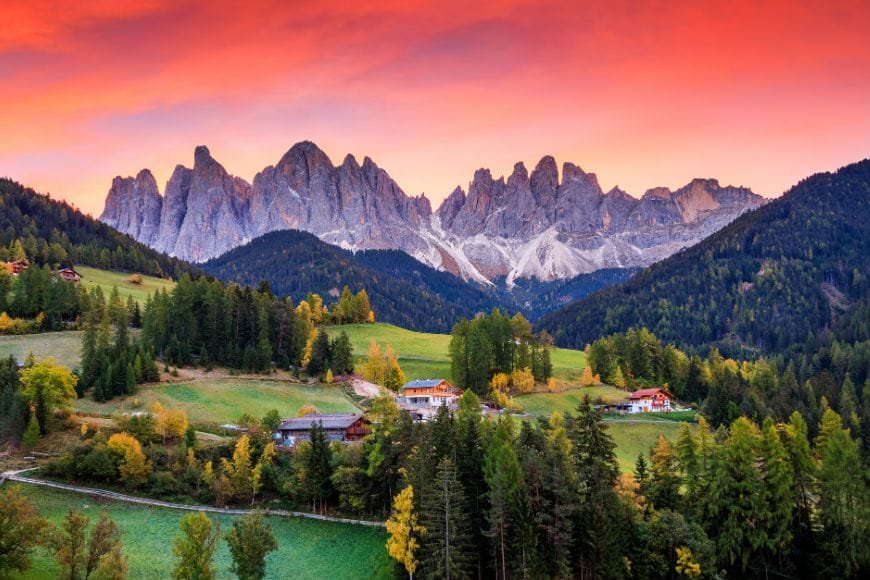
Must-Try Foods by Region
Each region has its own specialties:
- Rome → carbonara, cacio e pepe.
- Florence → bistecca alla Fiorentina.
- Naples → authentic Neapolitan pizza.
- Sicily → arancini and cannoli.
Personal highlight: One of my favorite food memories is joining a small food tour in Trastevere, Rome. Between tasting fried artichokes, and finishing with the creamiest carbonara I’ve ever had, it felt like eating my way through history.
Cultural Etiquette & Local Customs
Traveling in Italy isn’t just about seeing the sights — it’s also about fitting into the flow of everyday life. A few simple Italian culture tips will help you blend in, avoid common mistakes, and show respect to the people who call this country home. Italians are generally warm and welcoming, but they do appreciate when visitors take the time to understand their customs.
Language Basics
Even if you don’t speak Italian fluently, knowing a few polite phrases makes a huge difference. Always greet shopkeepers or restaurant staff with a “buongiorno” (good morning) or “buonasera” (good evening). A simple “per favore” (please) and “grazie” (thank you) can earn you friendlier service. Italians admire the effort, even if your accent isn’t perfect.
Tip: In Milan, I notice that people often switch to English quickly if they can tell you’re a visitor — but starting in Italian always leaves a better impression.
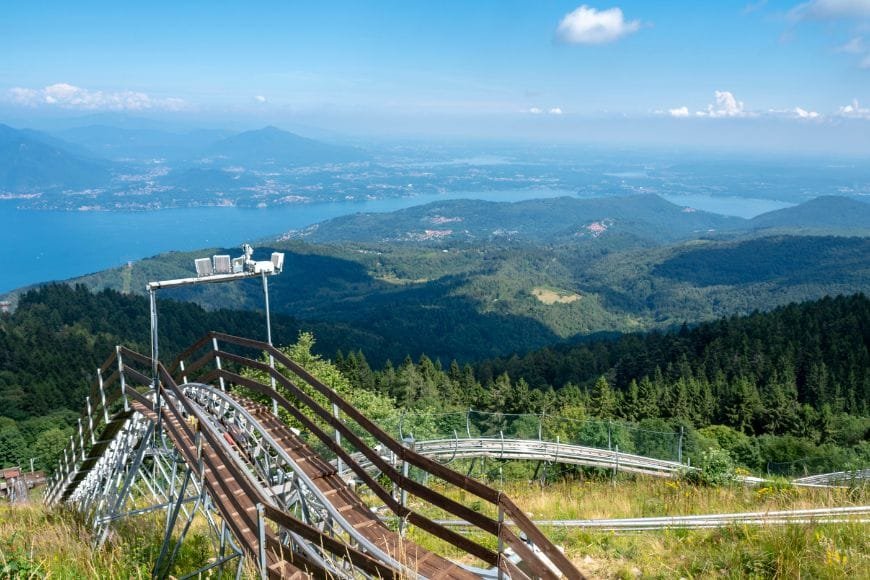
Italy Dress Codes
Appearance matters here, especially in religious or formal settings. When visiting churches like the Duomo in Milan or St. Peter’s Basilica in Rome, dress modestly by covering your shoulders and knees. In everyday life, Italians tend to dress neatly — Milan, being the fashion capital, is a place where even casual wear looks stylish. You’ll rarely see locals walking around the city center in gym shorts or flip-flops unless they’re tourists.
Daily Rhythms
Italian life runs on its own schedule. Afternoons are often reserved for riposo (a few quiet hours when shops close and families rest), particularly in smaller towns. Dinner starts late — usually around 8 pm or later — and meals are slow, social affairs. Sundays are sacred for family gatherings.
Personal note: Growing up in Milan, I quickly got used to the late dinners — sometimes sitting down for a plate of risotto alla Milanese well after 9 pm. When I traveled abroad, I realized how much I missed the slower, social evenings of home.
Respecting Local Culture
Coffee culture is sacred. Cappuccino is strictly a morning drink; order one after lunch and you’ll immediately stand out. Espresso (un caffè) is usually enjoyed quickly at the bar. In Milan, grabbing a quick espresso standing at the counter before rushing back to work is part of the city’s daily rhythm.
Shopping at local markets? Don’t touch the produce — always let the vendor pick it for you. And when you’re in piazzas or smaller neighborhoods, keep your voice down. Italians love animated conversation, but they value courtesy too.
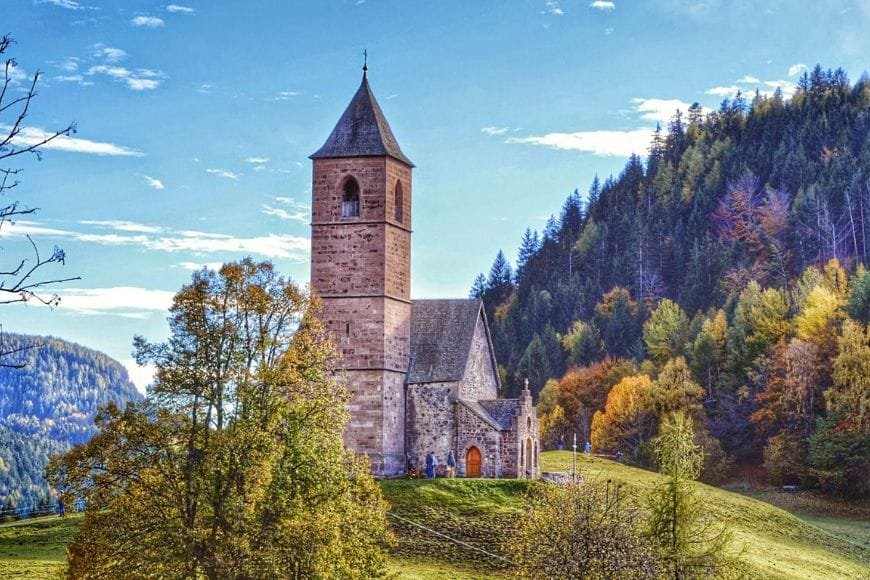
Gestures & Manners
A friendly handshake is common when meeting someone new. If you’re invited to someone’s home, bringing a small gift — like pastries from a local pasticceria or a bottle of wine — is thoughtful. In Milan, it’s not unusual for people to meet over an aperitivo instead of a formal dinner — it’s a beloved tradition that blends food, drinks, and conversation before the evening meal.
Get our FREE Italy
Travel Guide
E-Book
This printable guide is your ultimate companion for exploring Italy, with insider tips, detailed itineraries, transportation advice, must-see attractions, and more.

Safety & Common Travel Mistakes to Avoid in Italy
Italy is generally a very safe country for travelers, but like anywhere in Europe, it pays to be aware of your surroundings. Knowing what to watch out for will help you feel more confident and avoid unnecessary stress during your trip.
Is Italy Safe to Travel?
The short answer is yes — Italy is safe to travel, even for solo visitors. Violent crime is rare, and most Italians are welcoming and eager to help if you’re lost or need directions. The most common issue travelers face is minor theft in crowded areas.
Pickpockets & Tourist Scams
Pickpockets in Italy are skilled and usually target busy places like Rome’s Termini Station, Milan’s Central Station, Florence’s Duomo area, and Venice’s main tourist streets. Keep valuables secure, use cross-body bags, and be cautious when someone distracts you. Avoid unofficial taxis and anyone offering “help” at ticket machines in train stations — these are common tourist scams in Italy.
Local note: In Milan, I often tell friends visiting to be extra careful around Central Station — it’s busy and chaotic, which makes it easier for pickpockets to blend in.
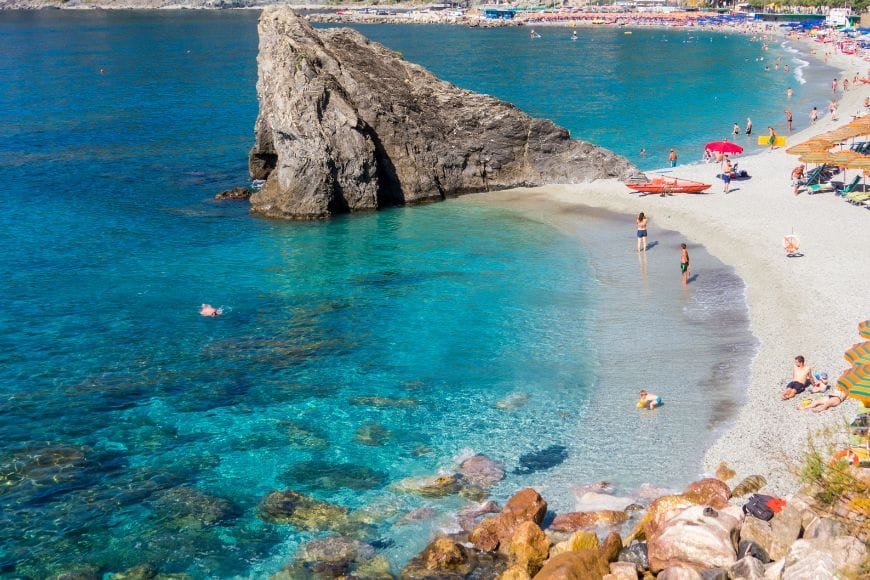
Common Travel Mistakes in Italy
Many first-time visitors to Italy make the same errors:
- Trying to see too much in one trip — Italy deserves slow travel.
- Renting a car without knowing about ZTL zones — fines are almost guaranteed.
- Expecting restaurants to serve at all hours — kitchens close between lunch and dinner.
- Ordering cappuccino after lunch — a dead giveaway you’re a tourist!
Practical Safety Tips
- Carry a copy of your passport, not the original, when sightseeing.
- Buy train tickets from official counters or machines only.
- Learn how to call emergency services: 112 works across the EU.
- Trust your instincts — if a situation feels off, walk away.
Personal highlight: I remember warning a friend from abroad not to buy tickets from a “helpful” man at Milan’s Metro station. She ignored me and ended up paying double for a fake ticket. Luckily, she learned quickly — but it was a reminder of how small mistakes can add up.
Packing & What to Bring to Italy
Packing for Italy is all about balance — looking stylish enough to blend in, but comfortable enough to walk miles on cobblestone streets. The right Italy packing list depends on when and where you’re traveling, but a few essentials apply year-round.
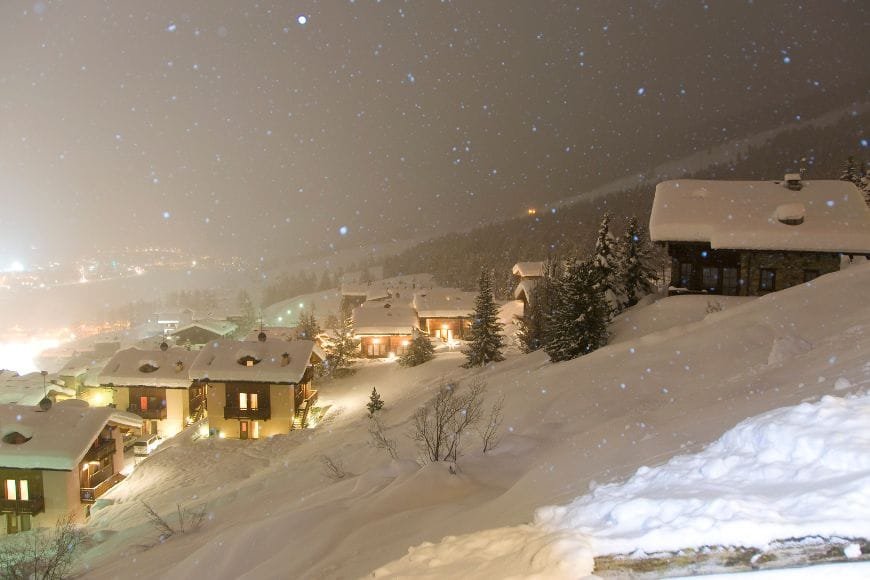
What to Wear in Italy
Italians take pride in their appearance, so while you don’t need a suitcase full of designer labels, avoid overly casual clothing like gym shorts or flip-flops in cities. Comfortable shoes are a must — you’ll be walking a lot, and those cobblestones can be unforgiving.
Pack layers, especially if you’re visiting multiple regions. Northern Italy can be cool even in spring, while the south basks in warmer Mediterranean weather.
Local note: Living in Milan, I’ve noticed that even casual outfits have a polished touch — a scarf, a well-fitted jacket, or stylish sneakers. If you want to blend in, think simple and neat.
Seasonal Packing Tips
- Spring/Fall: Light jackets, layers, comfortable walking shoes.
- Summer: Breathable fabrics, sunscreen, a hat, but avoid beachwear in cities.
- Winter: A warm coat, scarf, and gloves, especially if you’re heading to northern cities or the Dolomites.
Italy Travel Essentials
Beyond clothes, don’t forget these must-have items:
- A universal power adapter (Italy uses type C, F, and L plugs).
- Reusable water bottle — tap water is safe, and fountains are common.
- A small daypack for exploring cities.
- Travel insurance — always worth it for peace of mind.
What Not to Pack
You won’t need heavy camping gear, high heels for cobblestones, or huge amounts of cash. Also, skip bringing too many toiletries — Italian pharmacies are everywhere and stock high-quality products.
Personal highlight: I once packed only one pair of shoes for a 5-day trip. By day three in Rome, my feet were begging for mercy on the uneven streets. Now, I always pack two pairs of walking shoes — and my trips are far more comfortable.
Technology & Connectivity in Italy
Staying connected in Italy is easier than ever, but it’s worth planning ahead so you’re not stuck without data when you need to navigate a new city or book last-minute tickets.
SIM Cards & Mobile Data
Buying a local SIM card in Italy is often cheaper than using international roaming. Major providers like TIM, Vodafone, and WindTre offer prepaid plans with generous data. You can purchase SIMs at airports, train stations, or phone shops. Just make sure your phone is unlocked before arriving.
Local note: 👉 For tourists, I recommend getting an Airalo eSIM — it’s affordable, easy to set up before you land, and saves you the hassle of buying a local SIM card in Italy.
WiFi in Italy
Free WiFi in Italy is common in hotels, cafés, and many public spaces, but it’s not always fast or reliable. Train stations and airports offer hotspots, but connections often require registration. For smoother access, consider portable WiFi devices if you need constant connectivity.
Best Apps for Traveling in Italy
A few apps can make your trip much easier:
- Trenitalia / Italo → to check train schedules and book tickets.
- Google Maps or Maps.me → for offline navigation.
- Moovit → for public transport in big cities.
- TheFork → for restaurant reservations.
- Duolingo or Google Translate → for brushing up on Italian phrases.
- DiscoverCars to find and compare the best car rental deals in one place.
- Omio to compare and book cheap train, bus, flight, and ferry tickets.
Power & Charging
Italy uses type C, F, and L plugs with 230V voltage. Bring a universal adapter, and if you’re carrying multiple devices, a compact power strip will save you headaches.
Health, Safety & Travel Insurance in Italy
Italy is one of the safest and healthiest countries to visit, but a few tips will help you feel prepared in case something unexpected happens.
Medical Care in Italy
The healthcare system is excellent, and even as a visitor, you can access hospitals and clinics if needed. In larger cities like Milan, Rome, and Florence, many doctors and pharmacists speak English. Pharmacies (farmacie) are easy to spot thanks to their glowing green cross, and staff can often help with minor issues without needing to see a doctor.
Local note: In Milan, pharmacies are everywhere — even in small neighborhoods — and they’re usually the first stop for travelers with minor health concerns.
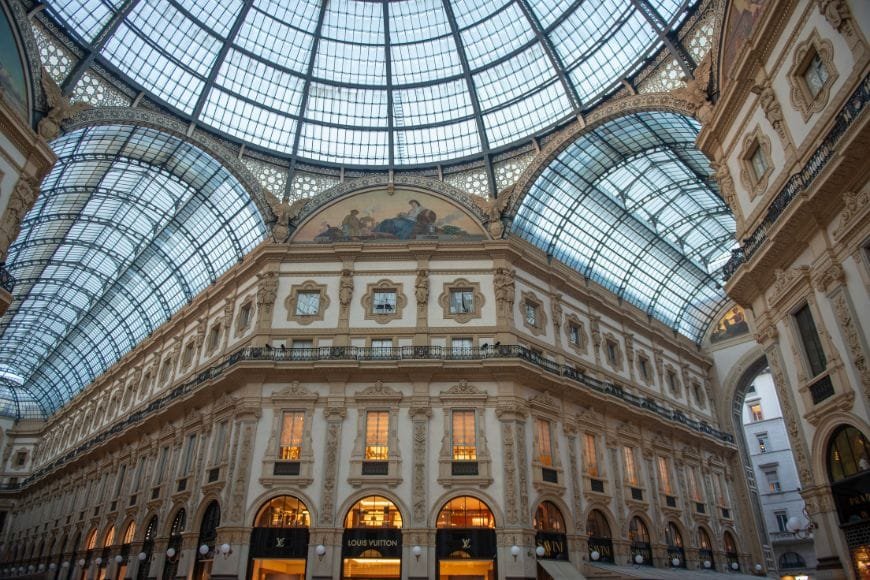
Is Tap Water Safe in Italy?
Yes — tap water in Italy is safe to drink, and in most cities, you’ll also find public fountains with clean, fresh water. Rome alone has over 1,500 nasoni (little fountains), making it easy to refill a reusable bottle.
Travel Insurance for Italy
Even though Italy is safe, travel insurance is always a smart idea. It can cover medical emergencies, trip cancellations, and lost luggage. If you plan on driving, check that your policy covers rental cars.
Emergency Numbers
Across Italy, dial 112 for emergencies (police, fire, ambulance). Some larger cities also have specific hotlines for tourists, offering help in multiple languages.
Common Health Tips
- Pack any prescription medication in its original packaging.
- Wear sunscreen in summer — the Mediterranean sun is strong.
- Comfortable shoes aren’t just for walking, but also for preventing injuries on cobblestones.
- If you plan to hike in the Dolomites or the Amalfi Coast, bring a small first-aid kit.
Personal highlight: I once got a nasty sunburn during a day trip to Cinque Terre because I underestimated how strong the spring sun could be on the coast. A quick trip to the local farmacia solved the problem, but since then, sunscreen is the first thing I pack — no matter the season.
Italy Bucket List
Beyond famous landmarks, there are countless unique things to do in Italy that make a trip truly unforgettable. Whether it’s exploring cultural traditions, food, or natural wonders, these belong on your Italy bucket list.
- Glide through Venice in a Gondola Ride → A classic and romantic Italy experience, especially at sunset.
- Join a Cooking Class in Tuscany → Learn to make pasta or pizza from scratch, paired with local wine.
- Watch an Opera in Verona’s Roman Arena → One of the most atmospheric settings for music in the world.
- Drive the Amalfi Coast → One of the best scenic drives in Italy and a true once in a lifetime experience.
- Hike the Dolomites or Try a Via Ferrata → For adventure lovers, the mountains offer world-class trails.
- Sip Wine in Piedmont → Especially during truffle season, when food and wine festivals fill the region.
- Throw a Coin in Rome’s Trevi Fountain → A timeless ritual that ensures your return to Italy.
Personal highlight: I remember our first Amalfi Coast Road Trip, with sheer cliffs on one side and turquoise sea on the other. It was both thrilling and nerve-wracking, but every curve revealed another breathtaking view. By the end of the drive, my husband and I agreed it was one of the most unforgettable experiences of our time in Italy.
Final Thoughts: Planning Your Italy Trip
Italy is a country that never stops surprising you. From Renaissance art and Roman ruins to rolling vineyards and seaside cliffs, every journey feels like stepping into a masterpiece. Whether it’s your first time in Italy or your fifth, there’s always something new to discover.
As a local from Milan, I’ve seen how visitors fall in love with the small details — sipping espresso at a café bar, strolling through evening piazzas, or hearing church bells echo in the distance. With the right Italy travel tips, you’ll experience not just the sights, but the rhythms and beauty of Italian life itself.
This Italy travel guide 2025 is your starting point — now it’s time to plan your own adventure and create memories that will stay with you long after the trip ends.
🧭 Plan Smarter: More Italy Travel Resources
If you found these tips helpful, don’t miss our other in-depth Italy guides to make planning even easier:
👉 Ultimate Italy Travel Guide 2025 – your complete all-in-one reference.
👉 Best Places to Visit in Italy – from timeless cities to hidden gems.
👉 How to Get Around Italy – trains, buses, driving, ferries, and insider advice.
👉 Best Time to Visit Italy – season by season breakdown.
👉 7 Days in Italy Itinerary – perfect if you only have a week.
FAQs About Italy Travel Tips
What are the best things to do in Italy for first-time visitors?
Rome’s Colosseum, Venice’s canals, Florence’s Duomo, and Tuscany’s countryside are must-sees, but also leave room for spontaneous discoveries.
What is the number one attraction in Italy?
The Colosseum in Rome is often considered the top attraction, drawing millions each year.
What unique experiences should I add to my Italy bucket list?
Try an agriturismo stay, attend a local food festival, hike the Dolomites, or watch an opera in Verona.
How many days do I need to see Italy’s top attractions?
At least 10–14 days is ideal to cover Rome, Florence, Venice, and one or two regions like Tuscany or the Amalfi Coast.
Do I need to buy tickets in advance for popular Italy attractions?
Yes — book ahead for places like the Vatican, Uffizi Gallery, Colosseum, and Last Supper in Milan to avoid long waits.
Get our FREE Italy
Travel Guide
E-Book
This printable guide is your ultimate companion for exploring Italy, with insider tips, detailed itineraries, transportation advice, must-see attractions, and more.

💬 We’d love to hear from you!
Have questions, tips, or personal travel stories to share? Drop them in the comments below — your insights help fellow travelers plan their adventures too.



